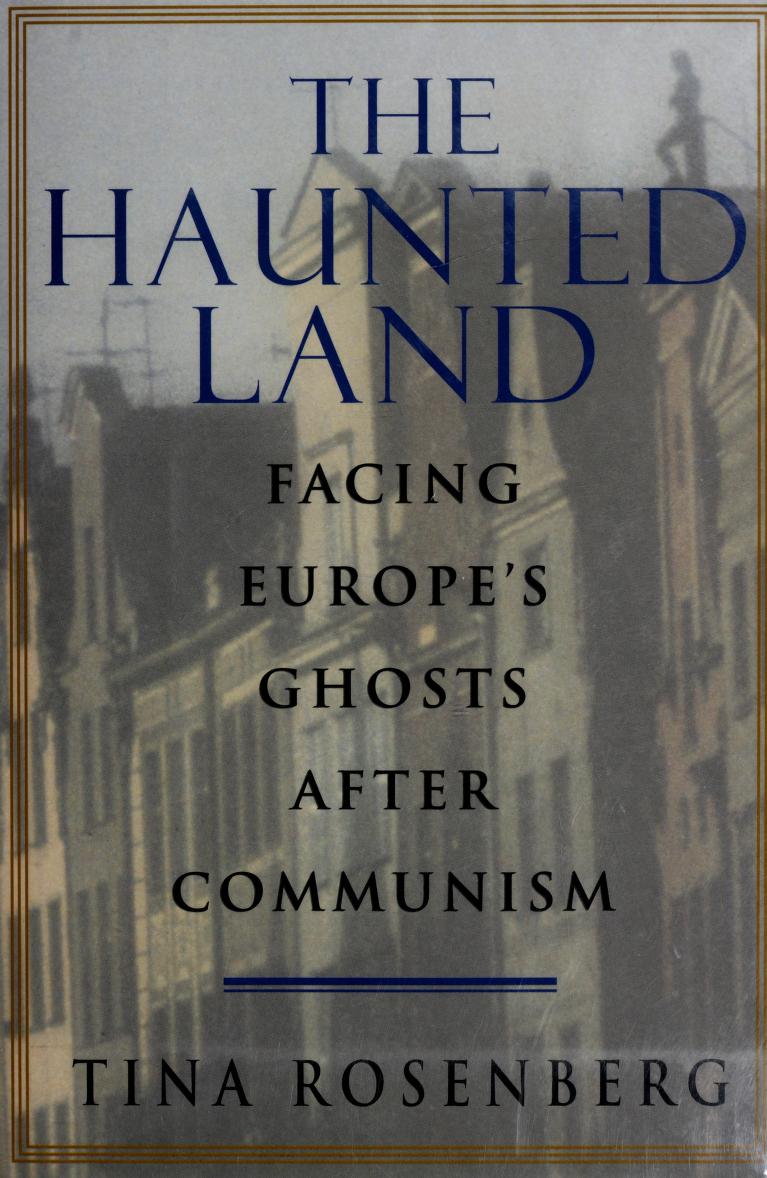Hardcover, 437 pages
English language
Published 1995 by Random House.

Hardcover, 437 pages
English language
Published 1995 by Random House.
The Haunted Land is a luminous, ground-breaking look at how four newly democratic eastern European nations are dealing with the memories of forty years of communism. As one official orthodoxy replaces another, the people and governments of Germany, Poland, the Czech Republic, and Slovakia face ethical dilemmas as complex and wrenching as anything out of Kafka or Orwell.
A soldier who follows orders and kills a man trying to cross the Berlin Wall is put on trial. A man agrees to inform for the secret police so his dying father will be released from prison. A lifelong secret-police official assigned to arrest dissidents begins to feed them information. A leader declares martial law, claiming his act of repression is preventing a Soviet invasion. Which of these people is guilty? How should they be punished? Who may sit in judgment?
In the greatest moral drama of our time, Communist totalitarianism drew …
The Haunted Land is a luminous, ground-breaking look at how four newly democratic eastern European nations are dealing with the memories of forty years of communism. As one official orthodoxy replaces another, the people and governments of Germany, Poland, the Czech Republic, and Slovakia face ethical dilemmas as complex and wrenching as anything out of Kafka or Orwell.
A soldier who follows orders and kills a man trying to cross the Berlin Wall is put on trial. A man agrees to inform for the secret police so his dying father will be released from prison. A lifelong secret-police official assigned to arrest dissidents begins to feed them information. A leader declares martial law, claiming his act of repression is preventing a Soviet invasion. Which of these people is guilty? How should they be punished? Who may sit in judgment?
In the greatest moral drama of our time, Communist totalitarianism drew well-intentioned, even idealistic people into horrible crimes. Now, as formerly Communist nations attempt to atone for the past, there is the ever-present temptation to rewrite history to suit the demands of the present. Tina Rosenberg's journalistic triumph is to put a human face on the abstractions of intrigue and betrayal, memory and ideology. The stories in this book take place not just in the highest councils of government and courts of law, but also in smoky pubs and the most private chambers of the soul. The Haunted Land shows how people struggle with their own definitions of guilt as they learn their betrayers were their husbands, fathers, and best friends. It tells stories of lives in turmoil as people wrestle with the crimes and everyday complicities of the Communist past — their leaders', their friends', and, most devastating, their own.
As the revolution revolves anew, the line between whitewash and witch-hunt, amnesty and amnesia, justice and vengeance, is often a blurry one. Unfortunately, for too many nations, dealing with past injustice has been not a way to break free of it, but the first step in its recurrence. The Haunted Land reveals the most poignant tragedy of Europe after communism: Governments come and go, but the habits of a lifetime remain. The struggle for memory and truth is not merely a question of eastern Europe's past, but of its future.